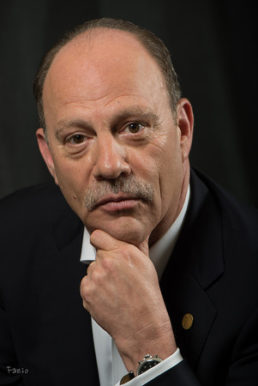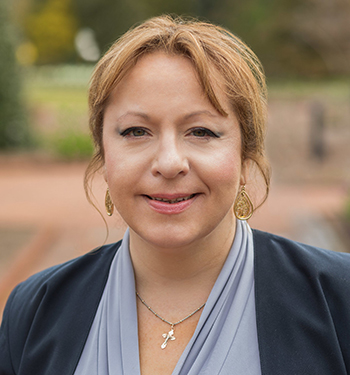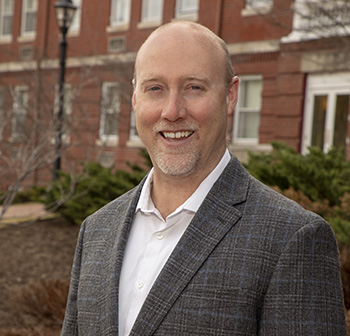Unconventional times
Hotels closed, workers furloughed as convention biz dries up
Maria Howard //April 30, 2020//
Unconventional times
Hotels closed, workers furloughed as convention biz dries up
Maria Howard //April 30, 2020//
After recent visits to Savannah, Georgia, and St. Louis, Missouri, Pete Kingwill is bringing the annual Police Fleet Expo to Richmond in August.
The Chicago-area-based meeting planner has been scouting locations in Virginia and North Carolina for a while now, knowing that the Southern states checked many of the boxes for what’s needed to host a national conference and exhibition targeted at police fleet managers who oversee their departments’ vehicles and related equipment.
“We can’t go to New York or Chicago,” Kingwill says, noting that hotels are too pricey in major cities. Yet airport access is key for his group. “We bring in people from all over the United States.”
The other facet that’s important is a softer, less defined element. “We want a place that has some appeal or charm to it,” he says. “We kind of look for places like that.”
The four-day event will bring more than 800 attendees and another 900 to 1,000 exhibitors to Richmond, kicking off Aug. 17 with a “ride and drive” event at the Virginia State Police Driver Training Complex in Blackstone. The education sessions and expo are scheduled to be held at the Greater Richmond Convention Center downtown.
Kingwill, co-owner of Hendon Media Group, which publishes Police Fleet Manager magazine, feels fortunate that the Police Fleet Expo is in mid- to late August instead of the springtime. Many meeting coordinators in similar positions have canceled or are deliberating whether to cancel large springtime events like this in the wake of nationwide bans on such gatherings due to the coronavirus pandemic. “It’s such a moving target,” he says.
‘Nobody was prepared’
Virginia is feeling the crushing effects of these cancellations.
In January and February, tourism and convention business in Virginia was pacing ahead of previous years, putting 2020 on track to be a banner year in every way, according to tourism officials across the state.
And then it all went away.
“This industry, more than many, has absolutely been devastated,” says Barry Biggar, president and CEO of Visit Fairfax, the primary tourism organization for Fairfax County.

Large conference groups suddenly canceled, leaving hotels empty. Some of the smaller groups, such as state trade associations, scrambled to shift their meeting dates to later in the year.
With conventions and guests canceling en masse, the economic fallout from the COVID-19 pandemic has resulted in the Virginia lodging and hotels industry shedding more than 23,000 jobs by mid-March, a figure that was expected to climb to 78,000, according to the Virginia Restaurant, Lodging & Travel Association and the American Hotel and Lodging Association. Major chains such as McLean-based Hilton Worldwide Holdings Inc. and Bethesda, Maryland-based Marriott International Inc. have furloughed tens of thousands of workers.
At the Omni Homestead Resort in Hot Springs, for instance, where numerous trade groups gather each year, rescheduling efforts ramped up, forcing the hotel to furlough workers and temporarily close from March 29 through at least May 15.
Most groups that had spring meeting dates are now looking to postpone events until the fall, says John Hess, director of sales and marketing for the resort.
While that’s an option for a group of a couple hundred people, it’s completely out of the question for larger, national conventions. A case in point is the National Council on Education for the Ceramic Arts, which was supposed to bring thousands of participants and exhibitors from across the country to its 2020 conference in Richmond the last weekend of March. The convention was called off and tourism officials are trying to reschedule it for 2024. Also from March, the four-weekend Jefferson Cup youth soccer tournament was rescheduled until July and August, and spring NASCAR races were held virtually, with plans for the June and September races. All of those events were expected to fill Richmond-area hotels and escalate tourism spending in the region.

“Nobody was prepared for what we’re seeing now,” says Dasha Runyan, vice president of sales and services for Richmond Region Tourism. “This is six times more impactful than 9/11.”
Runyan and her peers across the state now are trying to focus on the future, planning for the time when everything returns to normal. “This industry is incredibly resilient and we will bounce back,” Runyan says.
Biggar agrees. “We will weather this. We will come back,” he says. But the industry as a whole may never be quite the same.
“As we all know and as research has proven, when we as a society come back from such a devastating event, life changes,” he says. “In many cases, we don’t go back to the old way of doing things.”
Certain in-person meetings will always be necessary, Biggar says; however, smaller gatherings may be held online. “We may see that in the future it continues that way, and maybe virtual meetings of 10 people or less will become the norm rather than traveling.”
Big business
In the state’s major convention destinations — Northern Virginia, Hampton Roads and Richmond — this year started with unprecedented hotel occupancy and tax revenues generated from visitors, according to tourism officials in those areas.

“We had, unequivocally, the best January and February that Norfolk has ever had,” says Kurt Krause, president and CEO of VisitNorfolk. Hotel occupancy numbers and room rates were up at a time when there were more rooms available than ever before. “And,” he adds, “March and April were set up to be just as strong as previous years.”
While there is no breakout information for meetings and conventions, tourism in general is big business in Virginia. The travel industry is typically the state’s fifth-largest employer and it brought in $26 billion in visitor spending in the state in 2018, the most recent year for which statistics are available. That generated $1.8 billion in state and local tax revenue.
Business-related travel, including meetings and conventions, represents an important piece of that economic impact. According to the Virginia Tourism Corp., the average business traveler spends $932 and stays 2.8 nights. More than half of Virginia’s business travelers have an annual household income of $100,000 or more, and fine dining is their largest expenditure during trips.
Virginia localities are doing a good job of luring large groups to their cities and convention centers, says Anita Chapman Seay, a Mechanicsville-based international meetings coordinator and senior director of global accounts with HelmsBriscoe.
“I’m just really hoping that this COVID-19 situation doesn’t change the progress that’s been made,” says Seay, who generally works with groups of 400 to 700 people, helping organizations pick a meeting site and coordinate the details. While many of her clients were forced to cancel this year because of uncertainty surrounding the pandemic, she feels confident the industry will bounce back. “Nothing beats peer-to-peer networking.”
Trade groups may struggle financially this year if they’re not able to host meetings, Seay says. “Their bread and butter is their annual conference.” Money from sponsorships and registrations is critical to a trade association’s budget, she says. “That … money is what fuels the association throughout the year.”
In the same vein, meeting sites are sure to feel the long-range effects of this health-crisis fallout. Every major economic event that impacts the industry leaves its mark.

After the 2008 Great Recession, organizers began scaling back three-day conference events to two days, says Hess of the Omni Homestead. Companies that previously sent a large number of employees to association meetings often opted to cut that number in half.
“The other trend we’ve been seeing is the booking window has shortened,” Hess says. Groups that used to book nine months in advance are now firming up plans three months out. “Everybody is used to things happening on shorter notice.”
Factors such as these have created a more challenging and competitive environment, yet meeting sales representatives across the state feel confident the industry will prosper again, once this latest crisis passes. “We believe there will always be a demand for properties like this,” Hess says.
Krause, with VisitNorfolk, says the waterways and attractions in Norfolk make it an easy sell. He’s lived in Boston, Miami, Chicago, Atlanta and Washington, D.C., all cities where it usually takes an hour or more to drive from downtown to the airport. The airport is a much quicker drive from downtown Norfolk, and flight options are fairly abundant, he says.
“Once we get them here,” he says, “that experience they have really makes it easy for us to book business.”
Read more from the cover story package:
- Virginia hotels, attractions shut down during pandemic
- Delay of game — Sports tourism takes a timeout amid coronavirus
- Conference hotels chart



















